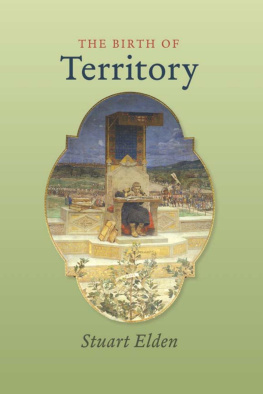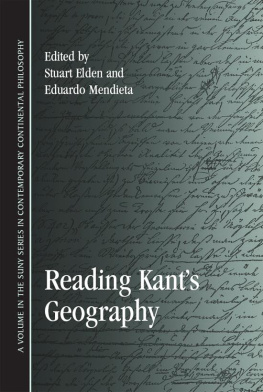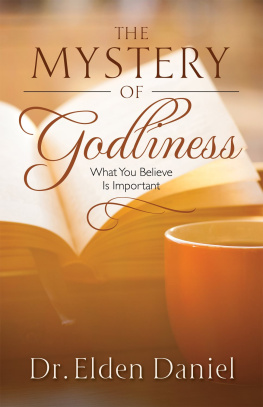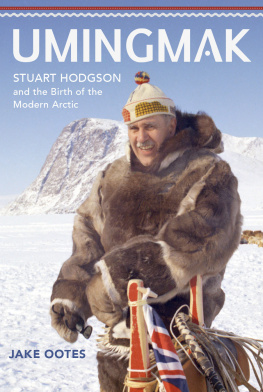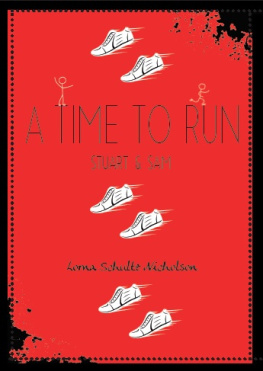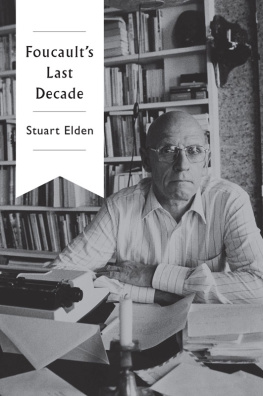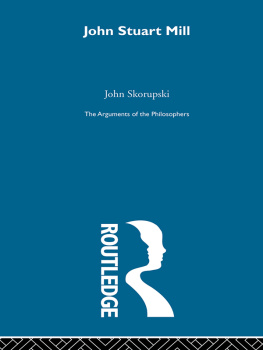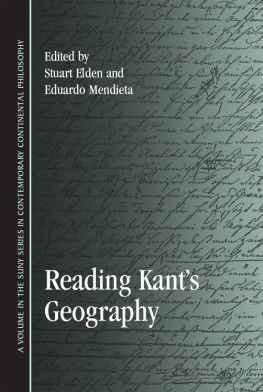Stuart Elden - The Birth of Territory
Here you can read online Stuart Elden - The Birth of Territory full text of the book (entire story) in english for free. Download pdf and epub, get meaning, cover and reviews about this ebook. year: 2013, publisher: The University of Chicago Press, genre: Politics. Description of the work, (preface) as well as reviews are available. Best literature library LitArk.com created for fans of good reading and offers a wide selection of genres:
Romance novel
Science fiction
Adventure
Detective
Science
History
Home and family
Prose
Art
Politics
Computer
Non-fiction
Religion
Business
Children
Humor
Choose a favorite category and find really read worthwhile books. Enjoy immersion in the world of imagination, feel the emotions of the characters or learn something new for yourself, make an fascinating discovery.
- Book:The Birth of Territory
- Author:
- Publisher:The University of Chicago Press
- Genre:
- Year:2013
- Rating:3 / 5
- Favourites:Add to favourites
- Your mark:
- 60
- 1
- 2
- 3
- 4
- 5
The Birth of Territory: summary, description and annotation
We offer to read an annotation, description, summary or preface (depends on what the author of the book "The Birth of Territory" wrote himself). If you haven't found the necessary information about the book — write in the comments, we will try to find it.
The Birth of Territory — read online for free the complete book (whole text) full work
Below is the text of the book, divided by pages. System saving the place of the last page read, allows you to conveniently read the book "The Birth of Territory" online for free, without having to search again every time where you left off. Put a bookmark, and you can go to the page where you finished reading at any time.
Font size:
Interval:
Bookmark:
STUART ELDEN is professor of political theory and geography at the University of Warwick.
The University of Chicago Press, Chicago 60637
The University of Chicago Press, Ltd., London
2013 by The University of Chicago
All rights reserved. Published 2013.
Printed in the United States of America
22 21 20 19 18 17 16 15 14 13 1 2 3 4 5
ISBN-13: 978-0-226-20256-3 (cloth)
ISBN-13: 978-0-226-20257-0 (paper)
ISBN-13: 978-0-226-04128-5 (e-book)
Library of Congress Cataloging-in-Publication Data
Elden, Stuart, 1971
The birth of territory/Stuart Elden.
pages. cm.
Includes bibliographical references and index.
ISBN 978-0-226-20256-3 (cloth : alk. paper)ISBN 978-0-226-20257-0 (pbk. : alk. paper)ISBN 978-0-226-04128-5 (e-book)
1. Political geography. 2. Geography, Ancient. 3. Geography, Medieval. I. Title.
JC319.E44 2013
320.1'2dc23
2013005902
 This paper meets the requirements of ANSI/NISO Z39.48-1992 (Permanence of Paper).
This paper meets the requirements of ANSI/NISO Z39.48-1992 (Permanence of Paper).
THE BIRTH OF TERRITORY
STUART ELDEN
THE UNIVERSITY OF CHICAGO PRESS
CHICAGO AND LONDON
CONTENTS
ACKNOWLEDGMENTS
This book has been in gestation for many years, and would have taken many more had it not been for the award of a Leverhulme Major Research Fellowship. I am extremely grateful to the Leverhulme Trust for this wonderful opportunity. Although I have been employed by Durham University for almost all of the time I have been working on this project, research leave and the Leverhulme award have meant that I have spent time elsewhere in visiting posts. I would like to thank the University of Virginia; University of Tasmania; University of British Columbia; University of California, Los Angeles; New York University; National University of Singapore; Queen Mary, University of London; University of Washington, Seattle; and the Australian National University for being excellent hosts. Libraries at all of the above institutions and in addition the British Library, Senate House Library, Warburg Institute, Columbia University, and University of York provided the materials I have used. The Geography Department at Durham University provided some financial assistance to help with the costs involved in this books publication. Chris Orton, Amy Kuttner, and the Palace Green Library helped with images.
I have greatly benefited from the enthusiasm, support, and advice of a number of people. I would like to particularly mention John Agnew, Suzanne Conklin Akbari, Luiza Bialasiewicz, Neil Brenner, Ed Casey, Jeremy Crampton, Veronica della Dora, Elgin Diaz, Colin Gordon, Laurence Hemming, Barbara Hooper, Emma Hutchinson, Engin Isin, Keith Lilley, David Livingstone, Jeff Malpas, Eduardo Mendieta, Alec Murphy, Nisha Shah, Charlie Withers and Haim Yacobi. At Durham I have a number of excellent colleagues, of whom Louise Amoore, Ben Anderson, Angharad Closs Stephens, Ray Hudson, Joe Painter, and Martin Pratt deserve special mention. Abby Collier at the University of Chicago Press has been an excellent and supportive editor, and Susan Cohan an exceptionally careful copyeditor. Samuel A. Butler and Andrew Burridge helped with the proofs and compiled the index. I am grateful for the reports from three anonymous referees for suggestions and pushing me to justify my approach. Above all, I am grateful to Susan for her love and support.
I have given talks on this project over many years, including in Australia (University of Tasmania; University of Western Sydney; University of New South Wales; Australian National University); Canada (University of Toronto; University of British Columbia; University of Victoria); Cyprus (University of Cyprus); Finland (University of Turku; Lapland University); Denmark (Danish Institute of International Studies); Germany (Technische Universitt Berlin; Friedrich-Alexander Universitt Erlangen-Nrnberg); Holland (Radboud University Nijmegen); Israel (Ben Gurion University); Hong Kong, China SAR (Hong Kong Baptist University); Italy (University of Palermo; Scuola Superiore SantAnna Pisa); Japan (Kyoto University); Macau, China SAR (University of Macau); Singapore (National University of Singapore); the United States (Association of American Geographers, San Francisco, Boston, and Washington, DC; New School for Social Research; University of Pittsburgh; University of Virginia; University of Washington, Seattle; Ohio State University; University of Oregon; University of California, Los Angeles; University of California, Berkeley; University of Arizona; New York University; Yale University); and the United Kingdom (Heythrop College, University of London; Durham University; Bath Royal Literary and Scientific Institution; Staffordshire University; University of Salford; Swansea University; University of Leicester; University of Lancaster; Royal Holloway, University of London; Queen Mary, University of London; Open University; University College London; University of Cambridge; Queens University Belfast; Newcastle University; University of Westminster; Aberystwyth University; Royal Geographical Society; University of Birmingham; Kings College London; Leeds University).
An earlier and longer version of the introduction was published as Land, Terrain, Territory, Progress in Human Geography 24 (2010): 799817. Parts of zation, Deterritorialization and the Space of the World, Transactions of the Institute of British Geographers 30 (2005): 819. I am grateful to Sage, Taylor & Francis, Johns Hopkins University Press, and Wiley-Blackwell for permission to reuse this material.
All primary texts are referenced back to the original language, with English translations noted where available. I have frequently modified existing translations. With primary texts, references are made to book, chapter, and section, where possible, to facilitate reference to different editions.
INTRODUCTION
At the beginning of the second book of his discourse on inequality, Jean-Jacques Rousseau declares:
The first man who, having fenced off a plot of land [enclos un terrain], thought of saying, this is mine, and found people simple enough to believe him, was the real founder of civil society. How many crimes, wars, murders, how many miseries and horrors might the human race had been spared by the one who, upon pulling up the stakes or filling in the ditch, had shouted to his kind: Beware of listening to this impostor; You are lost if you forget the fruits of the earth belong to all and that the Earth [Terre] belongs to no one.
Conflict over land, at a variety of spatial scales, is a major factor in human affairs, and, as Rousseau suggests, its effects have been almost entirely negative. Yet his argument here is twofold. First, that this event was the foundation of civil societywhich, at the time he was writing, still meant civilized society, that is, society with some form of structure and power relations. Civil society was, effectively, a society with some form of government, some form of state. It was opposed to the idea of a state of nature, rather than civil society and state being contrasted, as they were only after Hegel. Second, that if the consequences of this event were to be prevented, the time to challenge was at that precise moment. It was not something to contest subsequently, lest the challenge be seen as a rival plan for division rather than to see division itself as the problem. To believe the imposter was to mean all was lost. Yet, as Rousseau immediately concedes:
Several things might be said of this continuation. He recognizes that the question of property in land did not arise all of a sudden, but as a stage in a complicated set of relations that would stretch back in time. As he later notes, From the cultivation of land [
Next pageFont size:
Interval:
Bookmark:
Similar books «The Birth of Territory»
Look at similar books to The Birth of Territory. We have selected literature similar in name and meaning in the hope of providing readers with more options to find new, interesting, not yet read works.
Discussion, reviews of the book The Birth of Territory and just readers' own opinions. Leave your comments, write what you think about the work, its meaning or the main characters. Specify what exactly you liked and what you didn't like, and why you think so.

